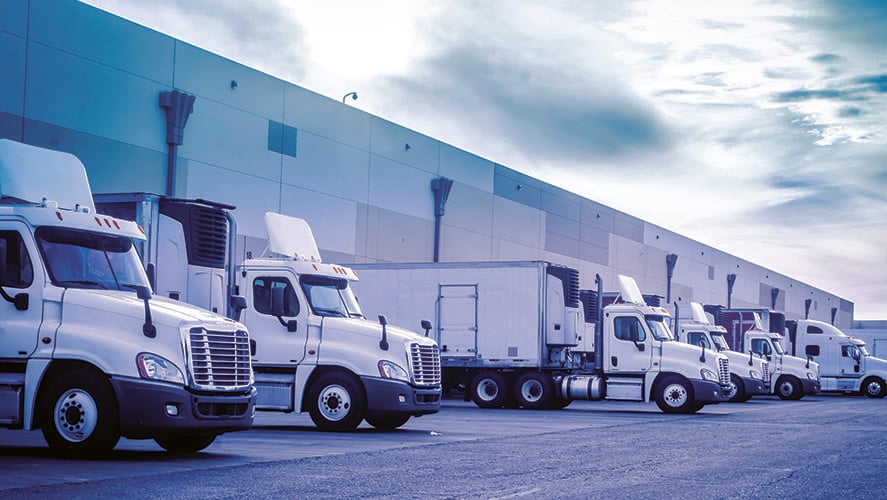Staying profitable in the transportation industry is a challenge these days, whether you're in freight or specialized trucking. Without a proper way to track and control operational expenses for your trucking company, you run the risk of going out of business.
One way to gauge profitability is to calculate the cost per mile for each of your trucks. That way, you’ll have a better understanding of your expenses when it comes time to charge your customers.
At CSI Accounting & Payroll, we've worked with transportation industry accounting for over 50 years. We know that calculating your cost per mile starts with your company’s expenses. In the transportation industry, expenses typically fall into three categories:
- Fixed costs
- Variable costs
- Payroll
Here is how to calculate them and how to find your cost per mile.

How to Calculate Your Company’s Cost Per Mile
1.) Fixed Costs
Fixed costs for your trucking company are expenses you pay regardless of whether your trucks are on the road working jobs or parked in the lot. Expenses include:
- Truck payments
- Insurance
- Permits
- Property costs
- Other services
Tally your fixed costs for the month, and divide those expenses by the number of miles your trucks drove for the same time period.
Example of Fixed Costs Per Mile:
$4,000 (fixed costs for the month) / 10,000 (miles driven for the month) = $.40 (per mile)
2.) Variable Costs
Variable costs are expenses needed to operate your trucks on a monthly basis. Unlike fixed costs, variable costs can vary from month to month, depending on your workload. These costs may include:
- Fuel
- Repairs
- Regular maintenance
- Meals
- Lodging
- Other expenses tied to operating your business on the road
Tally your variable costs for the month, and divide those expenses by the number of miles your trucks drove for the same time period.
Example of Variable Costs Per Mile:
$3,000 (variable costs for the month) / 10,000 (miles driven for the month) = $.30 (per mile)
3.) Payroll Costs
Don’t forget about your largest expense for the month: employee payroll. Similar to the equations above, divide the total payroll for the month by the number of miles your trucks drove for the same time period.
Example of Payroll Costs Per Mile:
$5,000 (payroll costs per month) / 10,000 (miles driven for the month) = $.50 (per mile)
4.) Total Cost Per Mile
To calculate your total cost per mile, simply add your fixed, variable, and payroll costs for the month.
Example Total Cost Per Mile:
$.40 (fixed) + $.30 (variable) + $.50 (payroll) = $1.20 (per mile)
Having these numbers on hand helps you to identify spending patterns for your trucking company. These reports also give you a benchmark to determine an appropriate rate to charge customers.
Don’t ignore accounting for your trucking company.
Not all situations are the same. If you're dealing with expenses that aren't listed or you aren't sure how to do these calculations for your unique situation, then a monthly accounting service can help you. Plus, they can offer in-depth advice on the results, turning numbers into real-world strategies.
Your business depends on having a solid financial foundation. Avoid cash flow issues, trim unnecessary expenses, and remain profitable by partnering with an accounting service with transportation industry experience to handle monthly reporting specific to your business.
If you're considering a monthly accounting service, why not check out CSI Accounting & Payroll? Contact us for a free consultation to see if we can be a good fit for your business! Click the button below:
Not ready to talk yet? That's okay! First, learn more about the different types of advice a monthly accountant can offer you by clicking the image below:
Brian Paulson
Brian is the owner of CSI Accounting & Payroll. After earning a double major in Accounting and Financial Management from the University of North Dakota, he joined CSI in 1996 and purchased it in 2002. With decades of experience, Brian now focuses on education: contributing to professional associations and business books, actively participating in continued learning for his team, and, of course, sharing transparent insights on CSI’s website.





